India’s First Signal School, Where Street Kids Study in a Shipment Container Under a Flyover!
Mumbai is now home to India’s first Signal School – a colourful classroom created out of a shipping container under a traffic signal flyover in Thane. This is how it operates.
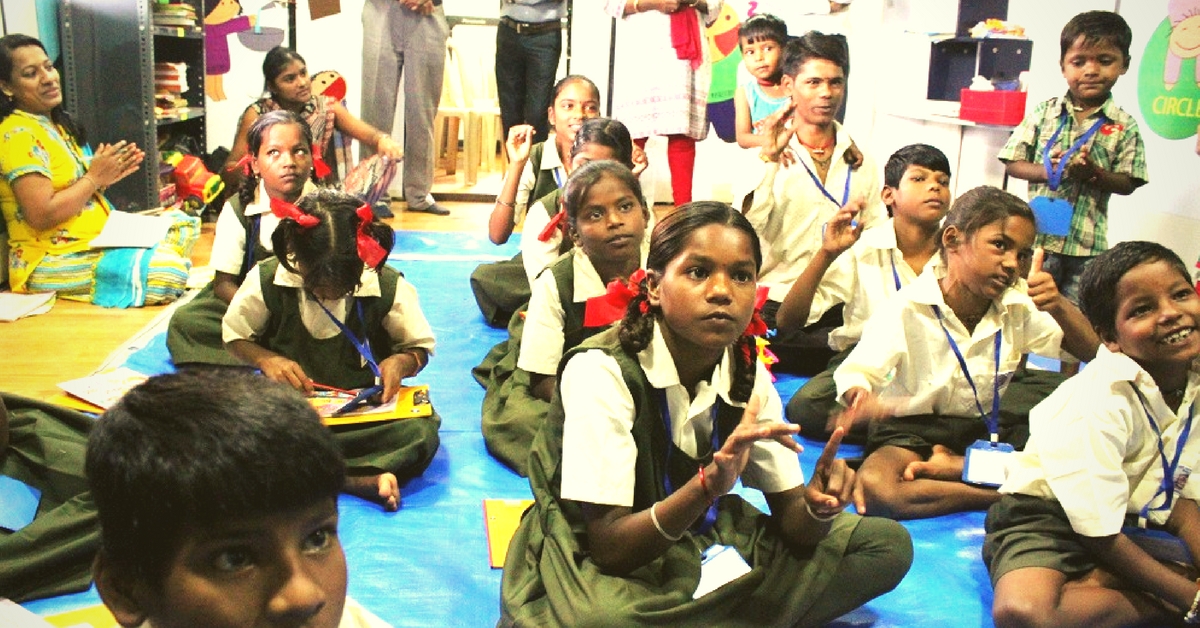
Mumbai is now home to India’s first Signal School – a colourful classroom created out of a shipping container that sits under a traffic signal flyover in Thane. This is how it operates.
“We believe that unless we serve and uplift the last person standing in the last queue in this country, we will not be able to move towards development at any level….if you consider children who work and beg at various traffic signals in India, there aren’t many people working for them. That was how the idea of this school took shape,” says Batu Sawant, the CEO of Samarth Bharat Vyaspith (SBV) – an NGO that started India’s first registered Signal School meant for such children in Mumbai.
Signal Shala is a school that operates out of a shipping container under Teen Haat Signal flyover in Thane. It was formally inaugurated on June 15 this year and currently has 22 children who earlier used to sell knick-knacks or beg at the traffic signal.
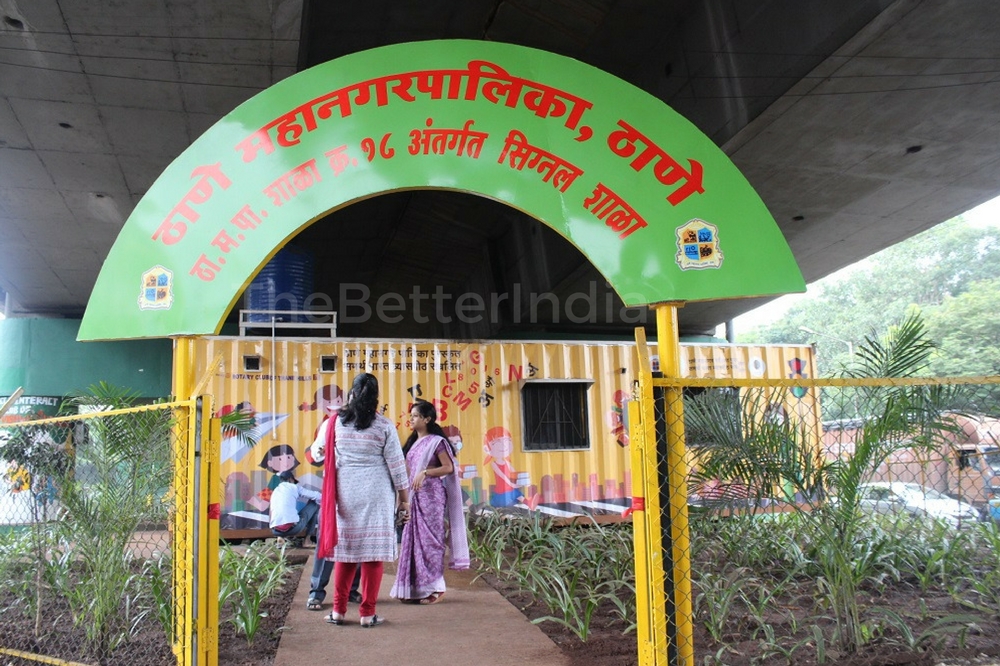
“For these kids and their parents, the signal is a place of business. They sell small items during peak traffic hours, and in the 4-5 hours in between, their parents send them to beg as well,” says Batu.
SBV is an NGO registered in Pune, which was started eight years ago with the aim of working for the upliftment of the downtrodden. The organisation started this school after several months of in-depth research. This included four detailed surveys in different time slots at four major signals in Mumbai. The survey helped the team determine how many children are present at the signals on a regular basis. After this, they spoke to the children’s parents to find out more about their backgrounds and needs. “We found that many of these people used to be farmers in rural Maharashtra and had migrated to the city because of droughts. They had come here looking for a better life but ended up living and working at the signals for the past 20-25 years,” says Batu.
The first step then was to convince the parents about why education is important for these kids, and this task was full of challenges.

“We started more like a play school. The kids would be in class for 15 minutes or half an hour. We had to run after them, search for them at the signals, and bring them to school daily. But now they are more than willing to attend and are super enthusiastic about meeting their teachers every day,” smiles Batu.
Signal Shala has four full-time teachers, one attendant and several volunteers who keep dropping by at regular intervals to help in some way or the other. Two of the teachers have completed a course in early childhood training and one of them is an expert in curriculum design. Most of the children are in the age group 3-8 and they attend classes for about four hours each day. “Our teachers work with the students on more than just education. Right from cleaning them up to making sure they are not hungry, everything is taken care of and it is not easy at all,” says Batu.
They have come up with a suitable curriculum and distinct teaching methods keeping the needs of every child in mind.
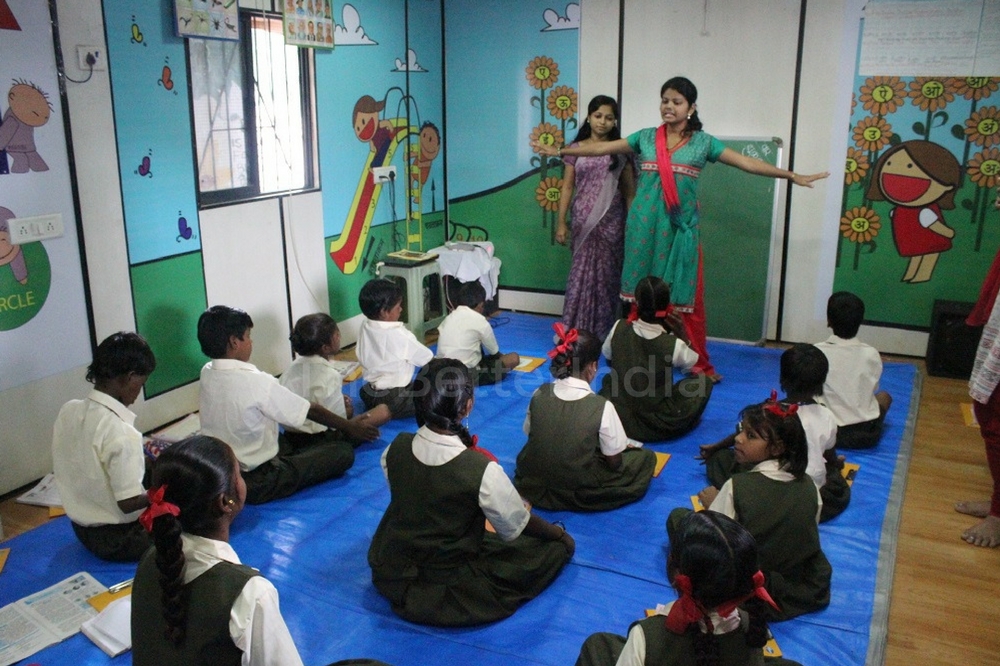
Some of the kids who dropped out after primary school or Class 7 are given special classes so they can prepare for board exams in a few years. But the focus is not on turning every kid into a doctor or engineer. The team wants to prepare the children to earn decent livelihoods and to this end, they will conduct vocational classes and skill development programmes based on the interests and capabilities of the children.
Other than everyday classroom teaching, the teachers use software developed by Tata Technology that uses the audio-visual method to deliver the entire SEC curriculum from Classes 1 to 10. “It is easier to gain the attention of kids with the help of pictures and music. While initially the kids would not sit for more than 15 minutes during class, we are now able to conduct four hours of regular lessons,” says Batu.
The shipping container has been revamped to make a classroom, a teachers’ room, and a toilet. The classroom can accommodate 40 children and the container has other facilities like fans, a pantry area, and a projector as well. The container has been made air tight because it gets very noisy under the flyover.
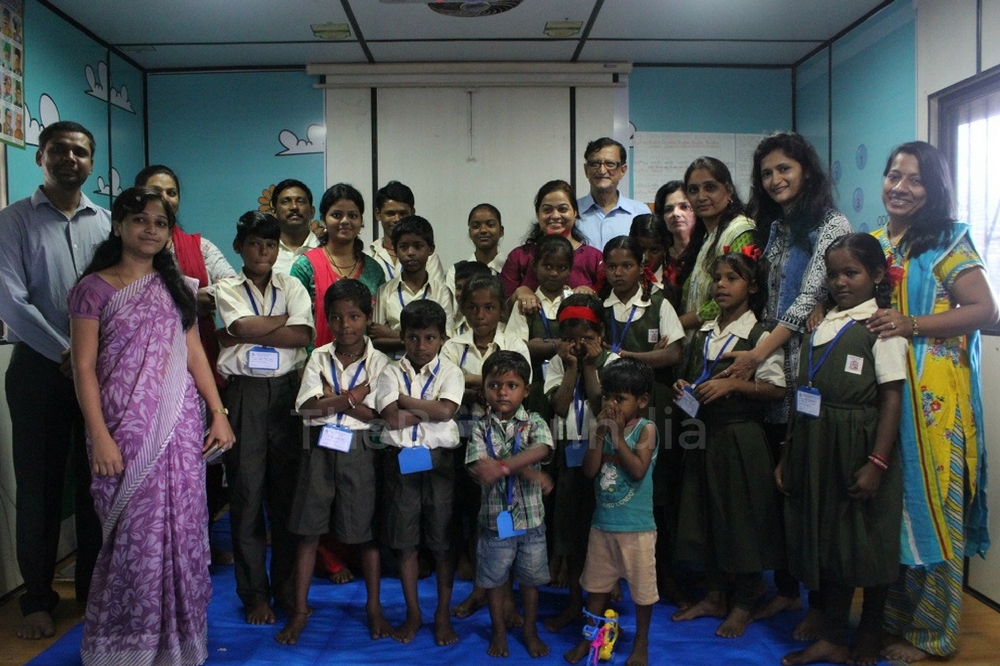
Instead of just focusing on academic lessons, Signal Shala is also working on the all-round development of the kids. A health camp was organised at the school on the third day after its opening. It was found that most of the children were suffering from skin-related diseases and had vitamin deficiency as well, due to which they could not concentrate on their lessons for long.
Many young kids sleep in the school every day. They are also bathed, groomed and given proper meals at the school. “We use these activities to inculcate good habits in students. For example, the children are taught to wash their hands before they begin to eat. Many of them also had the habit of spreading their hands out whenever the attendant would serve them food. We taught them not to do this. And when they notice such things, they realise that the school is not just a place where they are told to study but is also meant for their personal welfare,” says Batu.
There is a small covered area near the shipping container, which has a water supply. Children who were unable to take a bath in the morning are bathed here.

During the first few days of school, the kids received haircuts as well. The NGO also conducted a campaign for people to donate clothes and now the kids receive fresh clothes to wear after every few days. Additionally, the school volunteers help organise yoga, sports, and art and crafts lessons.
The NGO started the school with its own funds and the municipal corporation helped them set it up – the authorities arranged for the container, constructed an approach road for the kids to enter, and even installed a see-saw for the children to play after school hours. All of this was done with the idea of creating a school-like environment for the kids both inside and outside the ‘classroom’.
According to Batu, one of the biggest impacts the school has had so far is that begging activity by the children has reduced by about 80%. “The best part is that even if some kid goes out to beg after school hours, the other kids complain to the teachers the next day. In this way, they have developed the spirit of policing within themselves as they understand why education, not begging, will help them shape their futures,” he says.
In a year’s time, SBV plans to come up with a signal school model that can be replicated across the country. And Signal Shala aims to increase the number of children it works with over the next three months as the school has identified more children begging at nearby signals.
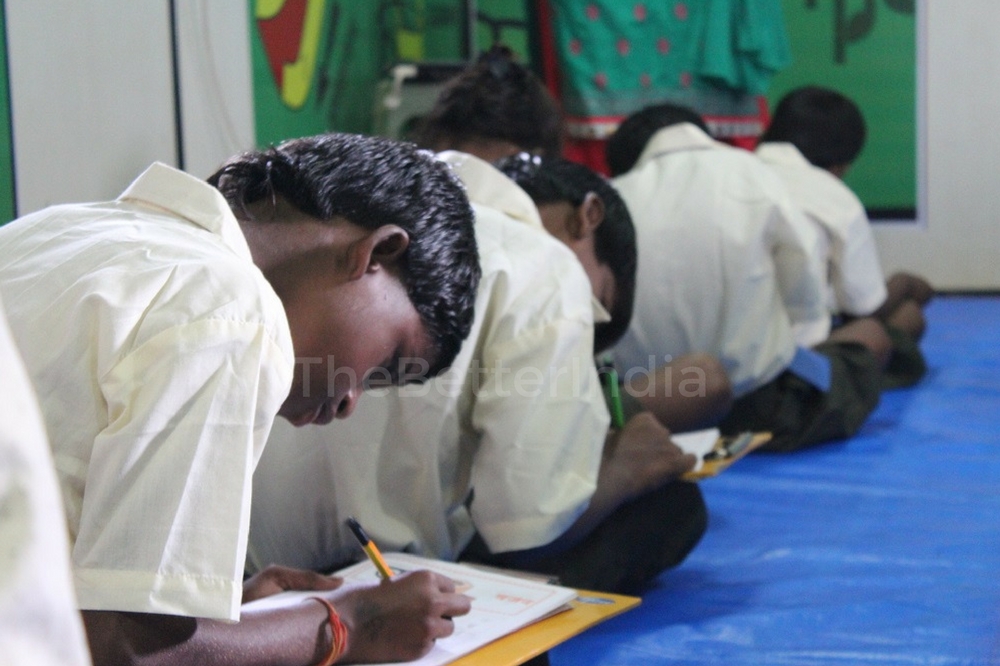
“After our research we realised we cannot start a school for such kids anywhere else other than at the signals because the kids cannot leave the signal and go. It was important to take the school to the kids directly. And we are giving them this environment so that the kids can feel the school is theirs; unless they do, the school will not develop,” emphasises Batu.
This Teacher’s Day, The Better India is supporting a bunch of passionate teachers who want to make a difference in the lives of street kids and help them get access to good quality education too. You can do your bit to help India’s first registered “Signal School” help 36 kids who have never been to school before, study and learn like all of us.
Unable to view the above button? Click here
Like this story? Or have something to share? Write to us: [email protected], or connect with us on Facebook and Twitter (@thebetterindia).
If you found our stories insightful, informative, or even just enjoyable, we invite you to consider making a voluntary payment to support the work we do at The Better India. Your contribution helps us continue producing quality content that educates, inspires, and drives positive change.
Choose one of the payment options below for your contribution-
By paying for the stories you value, you directly contribute to sustaining our efforts focused on making a difference in the world. Together, let’s ensure that impactful stories continue to be told and shared, enriching lives and communities alike.
Thank you for your support. Here are some frequently asked questions you might find helpful to know why you are contributing?


This story made me
-
97
-
121
-
89
-
167













